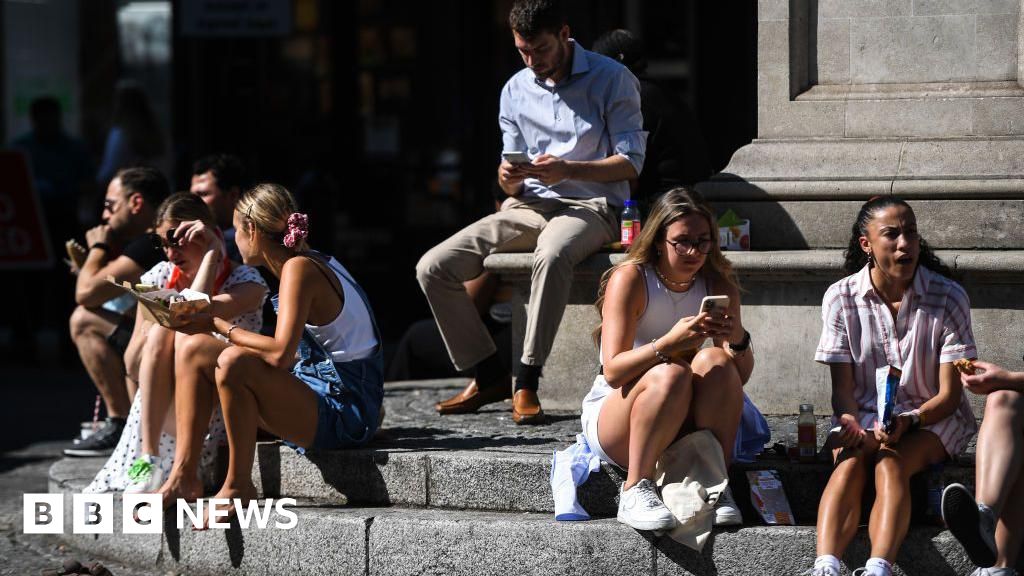Rich Lyons, the University of California, Berkeley, chancellor, challenged US House Republicans on Tuesday as they questioned Lyons and leaders of Georgetown University and the City University of New York in the latest hearing on antisemitism in higher education.
The committee accused the schools of failing to respond adequately to allegations of bias or discrimination, however the university leaders said that disciplinary action had been taken where appropriate and stressed the importance of protecting free speech.
Lyons pushed back on the suggestion that antisemitism was more present on college campuses than anywhere else.
“If somebody is expressing pro-Palestinian beliefs, that’s not necessarily antisemitic,” he said.
Lyons, in his first year as chancellor is also the first UC leader to face the House committee during the Trump presidency. In his opening remarks, he defended the campus’ commitment to free speech.
“As a public institution, Berkeley has a solemn obligation to protect the quintessential American value of free speech,” Lyons said. “This obligation does not prevent us, let me repeat, does not prevent us from confronting harassment and discrimination in all its forms, including antisemitism.”
The hearing was the ninth in a series Republicans have held to scrutinize university leadership over allegations of antisemitism on campuses after a wave of protests over Israel’s indiscriminate bombing of Gaza, which has killed more than 60,000 people, in retaliation to Hamas’ 7 October 2023 attack on Israel. Widely criticized testimony before the committee by the presidents of the University of Pennsylvania and Harvard University in 2023 contributed to their resignations.
At Tuesday’s hearing, Democrats blasted Republican committee members for their focus on antisemitism while not speaking on the dismantling of the education department, which is tasked with investigating antisemitism and other civil rights violations in schools.
“They have turned this hearing room into a kangaroo court, where they spend our time litigating a predetermined outcome to do nothing, actually, to help Jewish students, just make public theater out of legitimate pain,” said the California representative Mark Takano.
Republicans said university leaders have allowed campus antisemitism to run unchecked.
“Universities can choose to hire antisemitic faculty, welcome students with a history of antisemitism, accept certain foreign funding, and let the behavior of antisemitic unions go unchecked,” Tim Walberg, a Michigan representative and committee chair, said in his opening statements. “But we will see today they do so at their own risk.”
The hearing was periodically interrupted by protesters, who shouted pro-Palestinian slogans before being removed by Capitol police. Randy Fine, a Florida representative, berated the college presidents and said they were responsible because of the attitudes they had permitted on their campuses.
Republicans pressed the three college leaders on whether they had disciplined or fired faculty and employees for behavior they said was antisemitic. Elise Stefanik, a Republican representative of New York, pressed the CUNY chancellor, Félix Matos Rodríguez, on the employment of a law professor who worked on the legal defense of Mahmoud Khalil, a Palestinian activist the Trump administration attempted to deport over his role in protests at Columbia University.
Stefanik pushed Matos Rodríguez to answer whether the professor should be fired. Without responding directly, Matos Rodríguez defended CUNY and said antisemitism had no place at the school. He said any student or employee who broke CUNY rules would be investigated.
University leaders also emphasized the importance of free speech on campuses for students and faculty.
Richard Groves, the interim president at Georgetown, said that as a Jesuit university, fostering interfaith dialogue and understanding was a key part of the school’s mission. He said the university has not experienced any encampments or physical violence since the Hamas attack in October 2023.
“Given our Jesuit values, we expose students to different viewpoints on the Middle East,” Groves said. “In addition to speakers on Gaza, we’ve hosted IDF soldiers, families of Israelis and Palestinians who’ve lost their lives. US families of US hostages in Gaza. Georgetown is not perfect, and as events evolve, we’ve had to clarify rules of student behavior.”
Lyons, as well, said his campus has “more work to do” to prevent antisemitism.
“I am the first to say that we have more work to do. Berkeley, like our nation, has not been immune to the disturbing rise in antisemitism. And as a public university, we have a solemn obligation to protect our community from discrimination and harassment, while also upholding the first amendment right to free speech,” he said.

 German (DE)
German (DE)  English (US)
English (US)  Spanish (ES)
Spanish (ES)  French (FR)
French (FR)  Hindi (IN)
Hindi (IN)  Italian (IT)
Italian (IT)  Russian (RU)
Russian (RU)  3 weeks ago
3 weeks ago























Comments